Amy Bloom Quotes & Sayings (Page 5)
Amy Bloom quotes and sayings page 5 (writer). Here's quote # 41 through 50 out of the 60 we have.
“I think all writers are mainly writing for themselves because I believe that most writers are writing based on a need to write. But at the same time, I feel that writers are, of course, writing for their readers, too.”
“I wish someone else would write a book that clearly and persuasively articulated why women's reproductive rights are so important to this country, on both moral and legal grounds. When I say 'clearly and persuasively,' I mean that, after reading this wonderful book, all opposition to women's reproductive rights would evaporate, like morning mist.”
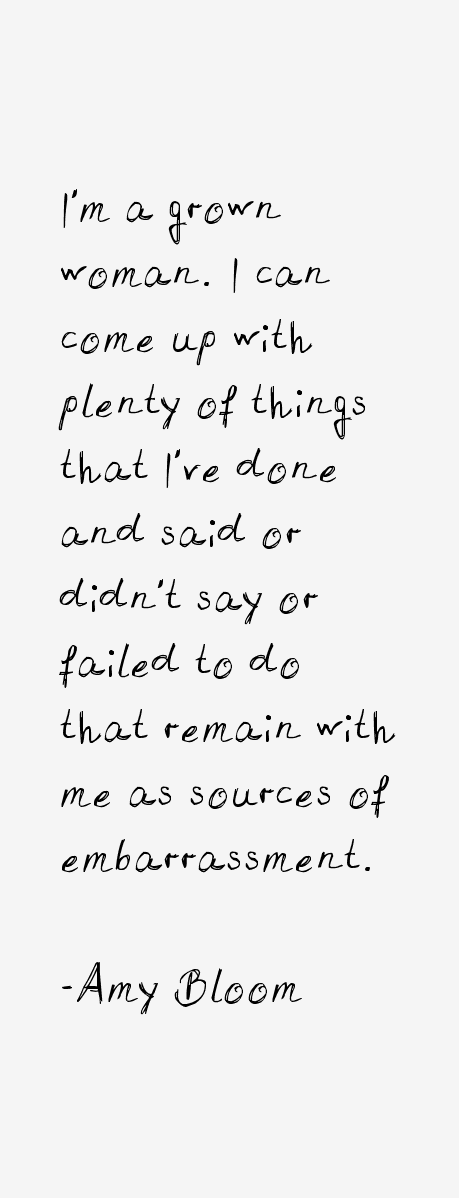
“I'm a grown woman. I can come up with plenty of things that I've done and said or didn't say or failed to do that remain with me as sources of embarrassment.”
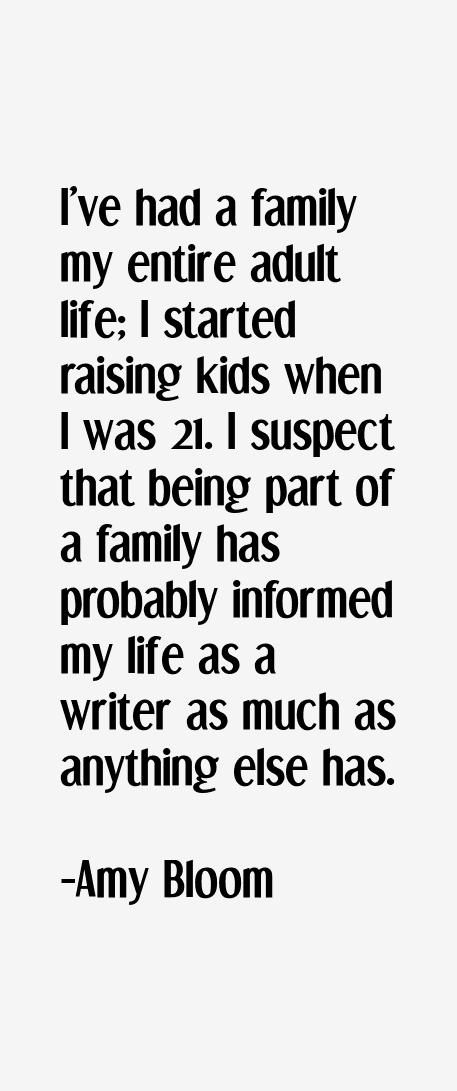
“I've had a family my entire adult life; I started raising kids when I was 21. I suspect that being part of a family has probably informed my life as a writer as much as anything else has.”
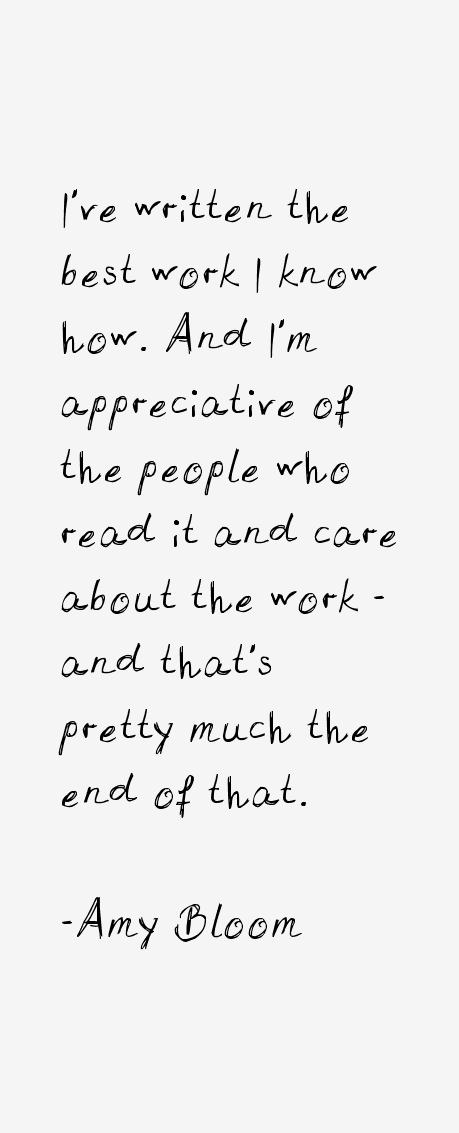
“I've written the best work I know how. And I'm appreciative of the people who read it and care about the work - and that's pretty much the end of that.”
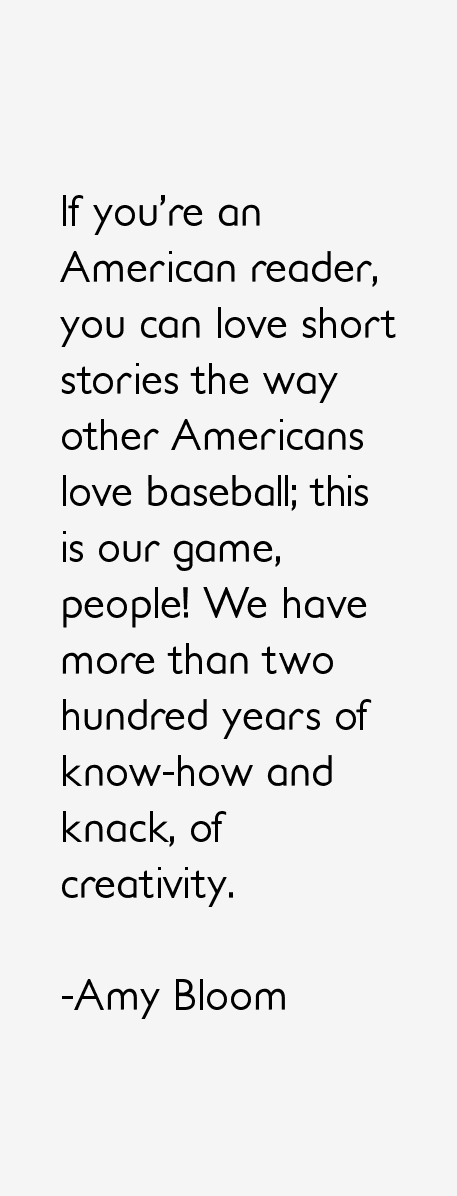
“If you're an American reader, you can love short stories the way other Americans love baseball; this is our game, people! We have more than two hundred years of know-how and knack, of creativity.”
“It took me a while to understand the meaning of a franchise: the reasons why you see lawyer, doctor, cop shows. It's not because anyone in their right mind says, 'You know, what's the most fascinating thing in the world?' It's because you need something new that happens every week in a frame.”
“My father certainly believed that one could make a living outside of an office, as he did. And that if I didn't want to work for other people, there wasn't any reason why I had to. He conveyed that very strongly to my sister and I - that smart people can make their own livings.”
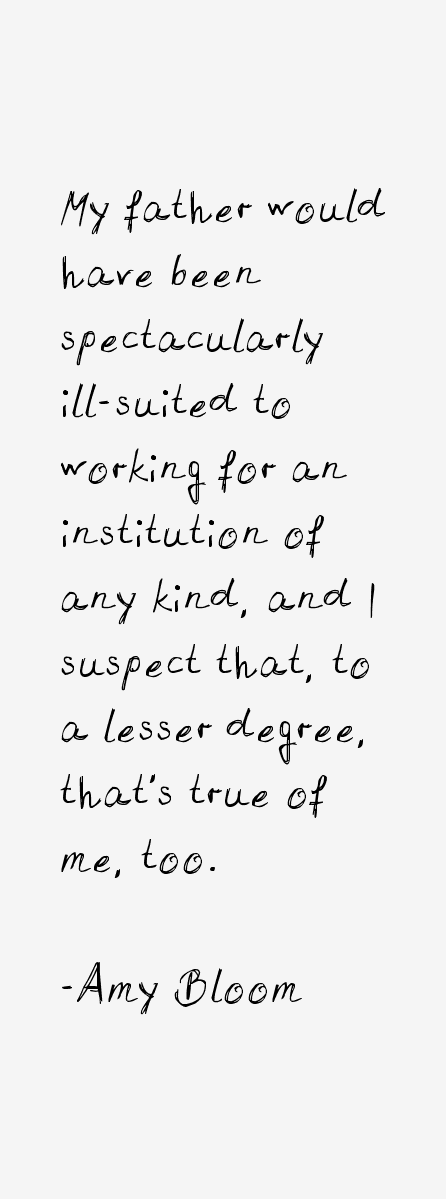
“My father would have been spectacularly ill-suited to working for an institution of any kind, and I suspect that, to a lesser degree, that's true of me, too.”
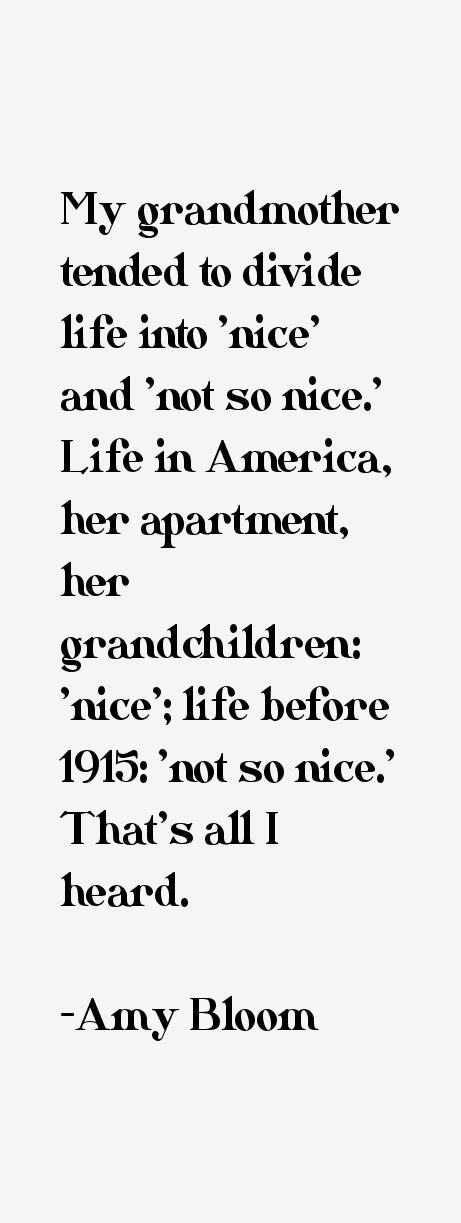
“My grandmother tended to divide life into 'nice' and 'not so nice.' Life in America, her apartment, her grandchildren: 'nice'; life before 1915: 'not so nice.' That's all I heard.”
Amy Bloom Quotes Rating
No Ratings Yet
Leave A Comment
























